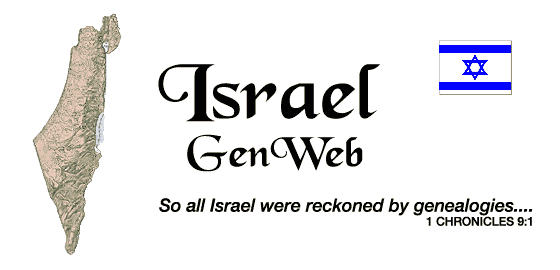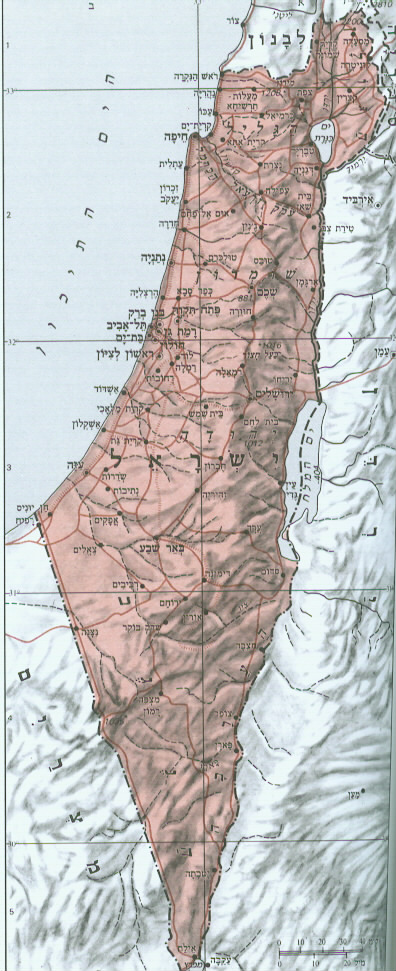



|
Menu: |
|

 Medinat Yisra'el is a republic in southwestern Asia and is located on the eastern
shore of the Mediterranean Sea. In Christian times after the Romans took control and forced the people into captivity, the area was re-named Palestine. This was done in an effort to injure the inhabitants by referring to the Phillistines who were an old enemy that had been destroyed by the Babylonians under Nebuchadrezzar II from Iraq.
Medinat Yisra'el is a republic in southwestern Asia and is located on the eastern
shore of the Mediterranean Sea. In Christian times after the Romans took control and forced the people into captivity, the area was re-named Palestine. This was done in an effort to injure the inhabitants by referring to the Phillistines who were an old enemy that had been destroyed by the Babylonians under Nebuchadrezzar II from Iraq.






 |


